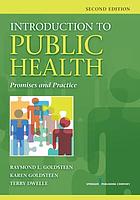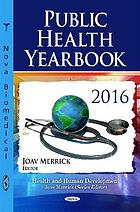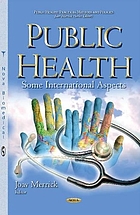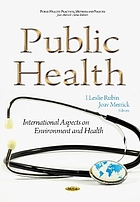Service Alert
One good reason to start your research early is that your perfect source may not be in Hege Library. But you can request or borrow many sources -- including print books and articles -- from other libraries using these programs:
 Rennertshofen
by
Aus Wikipedia. Nicht dargestellt. Auszug: Rennertshofen is a municipality in the district of Neuburg-Schrobenhausen in Bavaria in Germany. ...http://booksllc.net/?l=de
Rennertshofen
by
Aus Wikipedia. Nicht dargestellt. Auszug: Rennertshofen is a municipality in the district of Neuburg-Schrobenhausen in Bavaria in Germany. ...http://booksllc.net/?l=de
 Public Health Yearbook 2016
by
In this Public Health Yearbook 2016 present you with the epidemiology of arboviruses in Zambia, social work and health inequalities, papers on the risk of HIV/AIDS transmission among adolescents in English speaking Caribbean and many more papers on current public health issues. We bring you paper from the Social Work and Health Inequalities Network (SWHIN) created to combat the causes and consequences of unjust and damaging, socially-produced health inequalities on an international basis. This is accomplished through the sustaining of a global network of social work researchers, educators, practitioners, policy makers, managers, and others working together to promote research, discussion, and action around the world. This global network aims to exchange information and resources (e.g., research evidence, policy statements, systematic reviews of literature, relevant and emerging theories and practice models); collaborate on research and publication; develop and exchange examples of good practice, including good research praxis; develop and exchange ideas on teaching about health inequalities at all curriculum levels; and influence policy making wherever possible. We hope this Yearbook and the research will be of interest to our readers.
Public Health Yearbook 2016
by
In this Public Health Yearbook 2016 present you with the epidemiology of arboviruses in Zambia, social work and health inequalities, papers on the risk of HIV/AIDS transmission among adolescents in English speaking Caribbean and many more papers on current public health issues. We bring you paper from the Social Work and Health Inequalities Network (SWHIN) created to combat the causes and consequences of unjust and damaging, socially-produced health inequalities on an international basis. This is accomplished through the sustaining of a global network of social work researchers, educators, practitioners, policy makers, managers, and others working together to promote research, discussion, and action around the world. This global network aims to exchange information and resources (e.g., research evidence, policy statements, systematic reviews of literature, relevant and emerging theories and practice models); collaborate on research and publication; develop and exchange examples of good practice, including good research praxis; develop and exchange ideas on teaching about health inequalities at all curriculum levels; and influence policy making wherever possible. We hope this Yearbook and the research will be of interest to our readers.
 Public Health
by
Public health is the science and art of preventing disease, prolonging life and promoting health through the organized efforts and informed choices of society, organizations (public and private), communities and individuals. The mission of public health is the fulfillment of society's interest in assuring the conditions which make people healthy. In the twentieth century, one of the improvements in public health has been an increased life expectancy in the developed world. However, we have also seen other achievements in the provision of vaccinations, motor-vehicle safety, safer workplaces, control of infectious diseases, decline in deaths from coronary heart disease and stroke, safer and healthier foods, healthier mothers and babies, and family planning and fluoridation of drinking water. There has been some positive trends in recent years in developed countries, such as less smoking, more physical activity and better vaccination status. Still, drinking, obesity, violent crime and lack of health insurance are some challenging areas in public health. We need to apply what we have learned and know now in order to reduce health inequality in our nations in the future. We also need to use advanced technology to improve health and address new health issues as they emerge over time; it is imperative that people are ready to intervene and minimize adverse effects of new diseases at all times.
Public Health
by
Public health is the science and art of preventing disease, prolonging life and promoting health through the organized efforts and informed choices of society, organizations (public and private), communities and individuals. The mission of public health is the fulfillment of society's interest in assuring the conditions which make people healthy. In the twentieth century, one of the improvements in public health has been an increased life expectancy in the developed world. However, we have also seen other achievements in the provision of vaccinations, motor-vehicle safety, safer workplaces, control of infectious diseases, decline in deaths from coronary heart disease and stroke, safer and healthier foods, healthier mothers and babies, and family planning and fluoridation of drinking water. There has been some positive trends in recent years in developed countries, such as less smoking, more physical activity and better vaccination status. Still, drinking, obesity, violent crime and lack of health insurance are some challenging areas in public health. We need to apply what we have learned and know now in order to reduce health inequality in our nations in the future. We also need to use advanced technology to improve health and address new health issues as they emerge over time; it is imperative that people are ready to intervene and minimize adverse effects of new diseases at all times.
 Public health: International aspects on environment and health
by
Public health: International aspects on environment and health
by